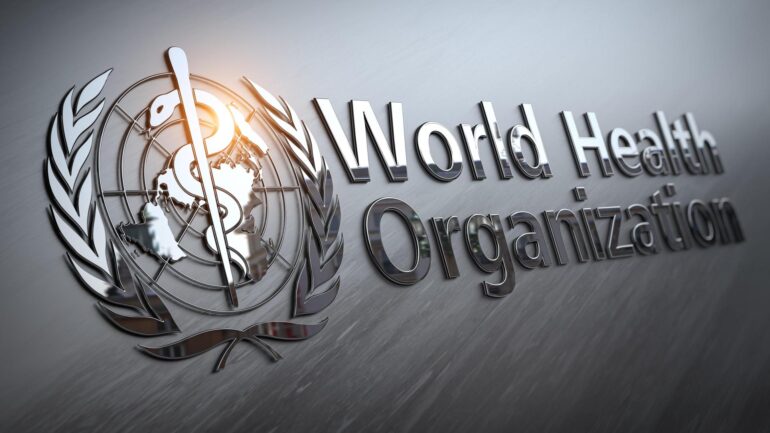- WHO introduces SARAH, a groundbreaking digital health advocate driven by advanced AI.
- SARAH offers round-the-clock support in 8 languages, covering diverse health topics on any device.
- The digital advocate aims to empower individuals to optimize their health and well-being journey.
- Equipped with generative AI, SARAH delivers personalized, empathetic responses in real-time.
- WHO emphasizes the need for ongoing research to address ethical concerns and maximize public health benefits.
- The SARAH project exemplifies WHO’s commitment to innovation in health communication.
Main AI News:
In a lead-up to the World Health Day, which centers on the theme ‘My Health, My Right,’ the World Health Organization (WHO) reveals the debut of SARAH, an innovative digital health advocate prototype featuring an enhanced empathetic interface empowered by generative artificial intelligence (AI).
SARAH, an acronym for Smart AI Resource Assistant for Health, signifies a significant advancement in AI-infused health advisory avatars, leveraging state-of-the-art language models and revolutionary technology. This digital assistant is primed to interact with users round-the-clock in 8 languages, addressing various health concerns, accessible across multiple devices.
Embodying WHO’s commitment to fostering optimal health and well-being, this digital advocate is designed to disseminate crucial health information encompassing diverse topics, from fostering healthy lifestyles to addressing mental health challenges. Its overarching objective is to furnish individuals with an additional resource to assert their health rights, irrespective of their geographical location.
SARAH, or affectionately known as Sarah, is equipped to aid individuals in comprehending the risk factors associated with prevalent global health threats such as cancer, cardiovascular diseases, respiratory ailments, and diabetes. Through personalized interactions, it facilitates access to timely information on smoking cessation, physical activity promotion, nutritional guidance, and stress management, among other pivotal aspects of health.
Dr. Tedros Adhanom Ghebreyesus, Director-General of WHO, underscores the pivotal role of digitalization in reshaping the future of healthcare, emphasizing the imperative of leveraging AI to democratize access to health insights through interactive mediums. He urges the research fraternity to explore the transformative potential of this technology in bridging healthcare disparities and furnishing individuals with accurate, up-to-date health information.
The latest iteration of SARAH harnesses the prowess of generative AI, a departure from conventional pre-programmed algorithms, facilitating real-time responses with enhanced accuracy. This evolution enables dynamic, tailored conversations that closely mimic human interactions, delivering nuanced, empathetic support in a non-judgmental environment, thanks to the backing of Soul Machines Biological AI.
However, WHO advocates for continued scrutiny and exploration of this cutting-edge technology to discern its broader implications for public health. While AI holds promise in fortifying healthcare infrastructure, it also poses ethical dilemmas pertaining to equity, privacy, data security, and bias mitigation.
Through ongoing evaluation and refinement, WHO underscores its unwavering commitment to democratizing access to health information while upholding ethical standards and evidence-based practices. Stakeholders, including developers, policymakers, and healthcare providers, are urged to address these ethical considerations to ensure equitable AI deployment and maximize its societal benefits.
The SARAH initiative epitomizes a quest for perpetual enhancement, aiming to cultivate a prototype that embodies reliability, responsibility, and inclusivity in disseminating health-related insights. Its antecedent, Florence, played a pivotal role in disseminating vital public health messages during the COVID-19 pandemic, marking a testament to WHO’s digital innovation endeavors.
As WHO continues to leverage diverse digital platforms for health advocacy, including social media, chatbots, and text messaging, the SARAH project stands as a beacon of innovation, striving to bridge information gaps and empower individuals to make informed health decisions.
Conclusion:
The introduction of SARAH by WHO signifies a pivotal moment in the intersection of technology and public health. This innovative digital health advocate has the potential to revolutionize how individuals access and engage with health information, transcending geographical barriers and fostering greater health literacy. For businesses in the healthcare sector, this underscores the increasing importance of integrating AI-driven solutions to enhance patient engagement and promote proactive healthcare management. Moreover, it highlights the imperative for stakeholders to prioritize ethical considerations in AI deployment to ensure equitable access and maximize societal benefits.

